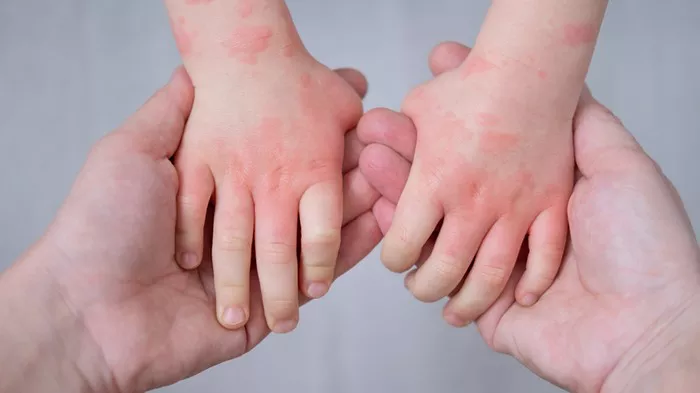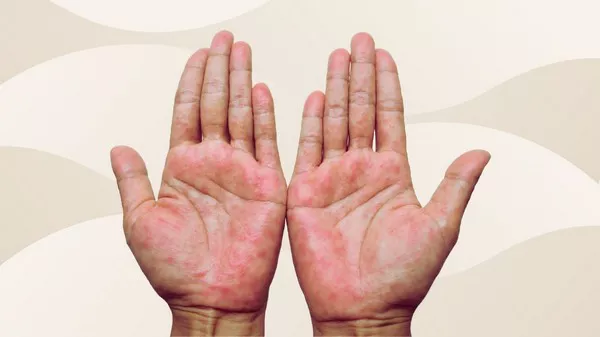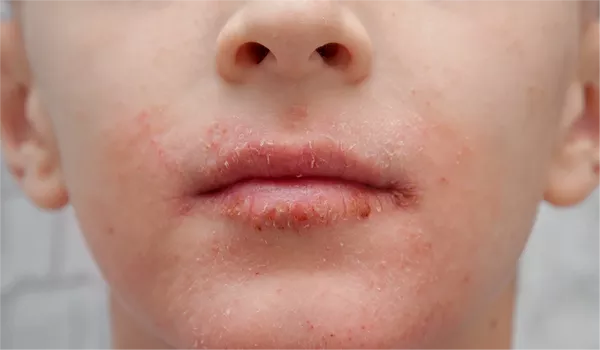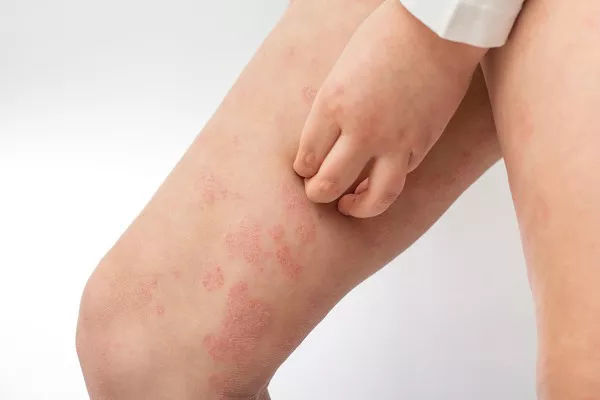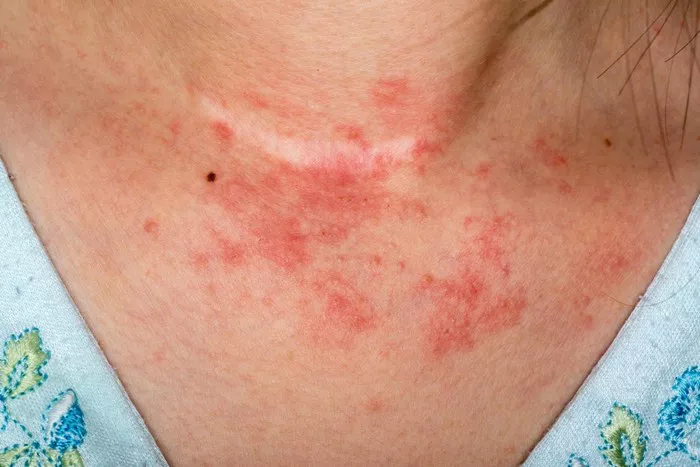Eczema, or atopic dermatitis, is a chronic skin condition characterized by inflamed, itchy, and often painful skin. It can significantly impact a person’s quality of life, leading to physical discomfort and emotional distress. While many individuals manage their symptoms effectively with standard treatments, some face the persistent challenge of stubborn eczema that resists conventional therapies. This article explores comprehensive strategies to address and treat stubborn eczema, focusing on both medical and lifestyle interventions.
Identifying the Underlying Causes of Stubborn Eczema
To effectively treat stubborn eczema, it’s crucial to understand the potential underlying causes. Eczema can be exacerbated by a variety of factors, including:
- Genetic Predisposition: A family history of eczema, asthma, or hay fever can increase the likelihood of developing stubborn eczema.
- Environmental Triggers: Allergens such as pollen, dust mites, pet dander, and certain foods can trigger or worsen eczema symptoms.
- Skin Barrier Dysfunction: People with eczema often have a compromised skin barrier, making their skin more susceptible to irritants and infections.
- Immune System Irregularities: An overactive immune response can cause inflammation and exacerbate eczema symptoms.
- Stress and Emotional Factors: Psychological stress can trigger or worsen eczema flares, creating a cycle of stress and flare-ups.
Understanding these underlying causes can help tailor treatment plans to address specific triggers and contributing factors.
Medical Interventions for Stubborn Eczema
1. Topical Treatments
Topical treatments are the first line of defense against eczema and can be particularly effective for stubborn cases when used correctly.
- Corticosteroids: These anti-inflammatory creams and ointments are commonly prescribed to reduce inflammation and alleviate itching. For stubborn eczema, a higher potency corticosteroid may be necessary, but it’s important to use these under medical supervision to avoid side effects such as skin thinning.
- Calcineurin Inhibitors: Tacrolimus and pimecrolimus are non-steroidal treatments that help modulate the immune response. They are particularly useful for sensitive areas like the face and eyelids where corticosteroids may not be suitable.
- Phosphodiesterase 4 Inhibitors: Crisaborole ointment works by inhibiting an enzyme involved in the inflammatory process, offering an alternative to corticosteroids for mild to moderate eczema.
2. Systemic Treatments
For severe or widespread eczema that doesn’t respond to topical treatments, systemic medications may be required.
- Oral Corticosteroids: These can provide rapid relief for severe eczema flares but are generally used short-term due to potential side effects, including weight gain, hypertension, and osteoporosis.
- Immunosuppressants: Medications like cyclosporine, methotrexate, and azathioprine can reduce immune system activity and are used for severe cases of eczema. Regular monitoring is essential due to the risk of serious side effects.
- Biologics: Dupilumab, a monoclonal antibody, has shown significant efficacy in treating moderate to severe eczema by targeting specific pathways in the immune response. It is administered via injection and requires ongoing medical evaluation.
3. Phototherapy
Ultraviolet (UV) light therapy can be an effective treatment for stubborn eczema. Narrowband UVB is the most commonly used form, helping to reduce inflammation and itching. Phototherapy requires regular sessions and should be conducted under medical supervision to minimize risks such as skin aging and increased cancer risk.
Complementary and Alternative Therapies
1. Moisturizers and Emollients
Maintaining proper skin hydration is essential for managing eczema. Emollients and moisturizers help restore the skin barrier and prevent moisture loss.
- Ointments: Thick ointments like petroleum jelly are highly effective at sealing in moisture and providing a protective barrier.
- Creams and Lotions: These are lighter than ointments and may be more suitable for daytime use. Look for products free from fragrances and dyes to minimize irritation.
- Bath Additives: Adding colloidal oatmeal or bath oils can soothe irritated skin and provide additional moisture.
2. Diet and Nutrition
Diet can play a significant role in managing eczema for some individuals, particularly if food allergies or sensitivities are involved.
- Elimination Diets: Identifying and avoiding trigger foods, such as dairy, nuts, or gluten, can help reduce eczema symptoms. Working with a dietitian can ensure nutritional needs are met while eliminating potential triggers.
- Anti-inflammatory Foods: Incorporating foods rich in omega-3 fatty acids (such as fish and flaxseeds), antioxidants (like berries and leafy greens), and probiotics (found in yogurt and fermented foods) can support overall skin health.
3. Stress Management
Given the link between stress and eczema flare-ups, incorporating stress-reduction techniques can be beneficial.
- Mindfulness and Meditation: Practices such as mindfulness meditation can help reduce stress levels and improve emotional well-being.
- Exercise: Regular physical activity releases endorphins, which can help manage stress and improve overall health.
- Cognitive Behavioral Therapy (CBT): CBT can be particularly effective in helping individuals manage stress and develop coping strategies for dealing with chronic conditions like eczema.
4. Natural and Herbal Remedies
Some individuals find relief using natural and herbal remedies, although scientific evidence supporting their efficacy is limited.
- Coconut Oil: Known for its antimicrobial properties, coconut oil can help moisturize and protect the skin.
- Aloe Vera: Aloe vera gel has anti-inflammatory and soothing properties, making it a popular choice for reducing skin irritation.
- Chamomile: Chamomile creams and teas can have anti-inflammatory and calming effects, potentially reducing eczema symptoms.
Lifestyle Modifications
1. Skincare Routine
Adopting a gentle skincare routine can help manage eczema and prevent flare-ups.
- Gentle Cleansing: Use mild, fragrance-free cleansers and avoid hot water, which can strip the skin of natural oils.
- Regular Moisturizing: Apply moisturizers immediately after bathing to lock in moisture. Reapply throughout the day as needed.
- Avoiding Irritants: Choose hypoallergenic skincare and laundry products. Avoid wearing rough fabrics like wool that can irritate the skin.
2. Environmental Control
Managing environmental factors can reduce eczema triggers.
- Humidity Control: Use a humidifier in dry environments to maintain skin hydration.
- Temperature Regulation: Avoid extreme temperatures and sudden changes in climate that can exacerbate eczema.
- Allergen Reduction: Implement measures to reduce exposure to common allergens, such as using dust mite-proof covers on bedding and regularly cleaning to reduce dust and pet dander.
Monitoring and Adapting Treatment Plans
Eczema is a dynamic condition that can change over time. Regular monitoring and adapting treatment plans as needed is crucial for effective management.
1. Regular Medical Follow-ups: Keep regular appointments with a dermatologist to monitor the condition and adjust treatments as necessary.
2. Personalized Treatment Plans: Work with healthcare providers to develop a personalized treatment plan that considers individual triggers, lifestyle, and treatment preferences.
3. Patient Education: Understanding the condition and how to manage it empowers patients to take an active role in their treatment and make informed decisions.
Conclusion
Treating stubborn eczema requires a multifaceted approach that addresses the underlying causes, employs a range of medical and complementary therapies, and incorporates lifestyle modifications. By understanding the unique factors contributing to each individual’s eczema and tailoring treatment plans accordingly, it is possible to achieve significant improvements in symptoms and quality of life. Collaboration with healthcare professionals, ongoing monitoring, and patient education are key components in managing this challenging condition effectively. With persistence and a comprehensive strategy, even the most stubborn cases of eczema can be brought under control.
Related Topics:

